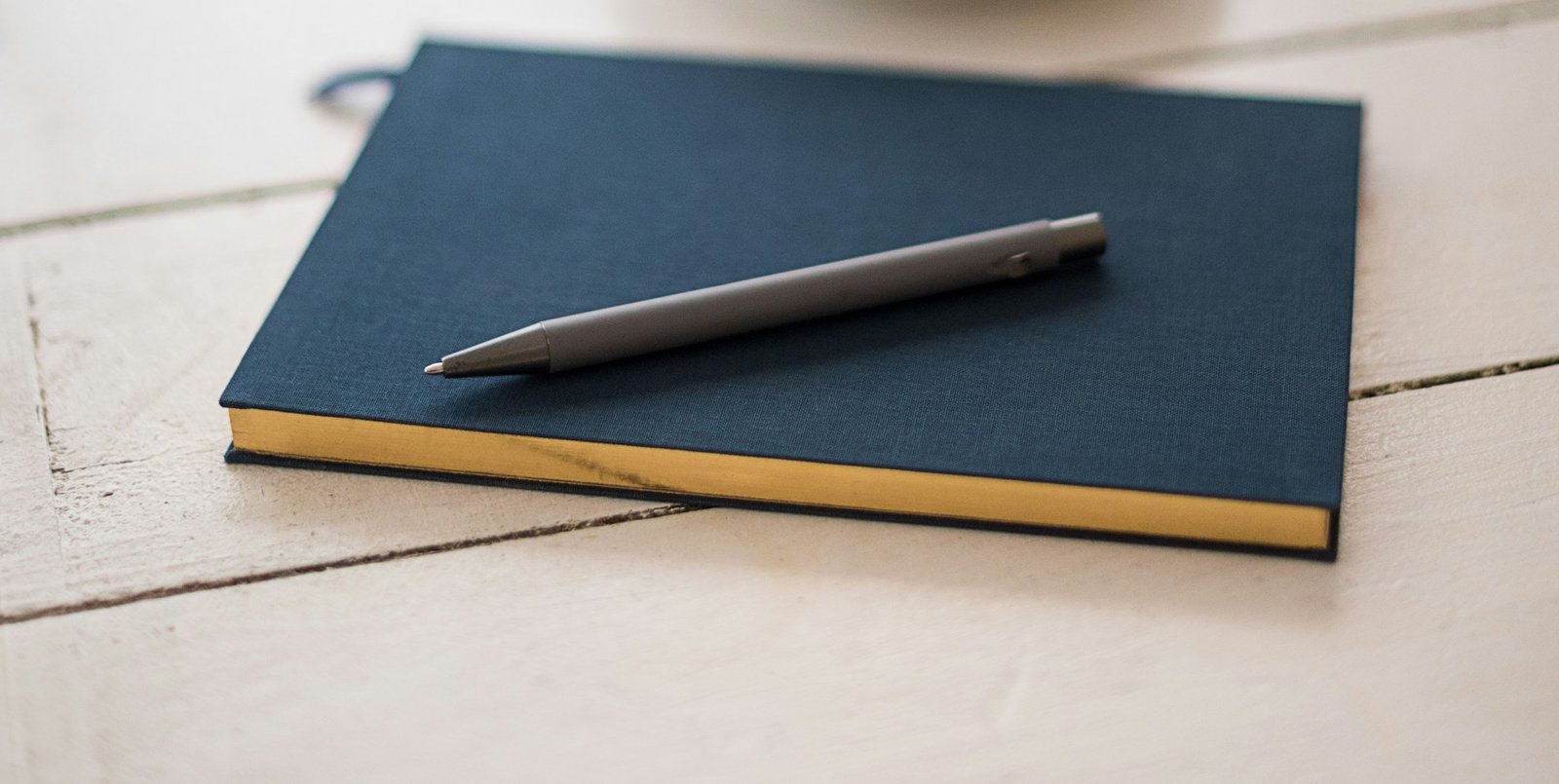You’re probably bombarded with “journal your way to a million dollars” ads and “unlock your inner goddess with daily affirmations” nonsense. I can’t promise you any of that. What I can offer is some practical, down-to-earth advice on starting a journal, because sometimes the simplest things are the hardest to get going.
Here are some tips to start a beginner journal. Even if you’ve failed in the past, they’ll help.
1. Ditch the Fancy Journal (Seriously)
Forget the Instagram-perfect, hand-stitched, leather-bound journal. It sounds funny, but that’s just pressure you don’t need. Go to Walmart and buy a plain composition notebook or a spiral-bound pad for a dollar. Or even use a scrap of paper—it all works.
The point is to write, not to curate a Pinterest-worthy aesthetic. You can always upgrade your journal supplies if you find you’ve outgrown what you started with. Don’t let the idea of the “perfect” journal stop you from actually starting.
2. Embrace the Mess (and the Ugly Crying)
Your journal isn’t a performance. It’s not for anyone else’s eyes (unless you choose to share it, but that’s probably not a good idea at first). Beyond stress relief, journaling can have a positive impact on your overall mental well-being. Research suggests it can help with everything from processing emotions to improving self-awareness.
So, let go of the need to be eloquent, profound, or even grammatically correct. Spelling mistakes? Scribbles? Emotional outbursts that would make your therapist blush? All good. The messier, the better, honestly. That’s where the real stuff comes out.
3. Find Your Beginner Journaling Sweet Spot (Time and Place)
Consistency is key, but it doesn’t have to be a rigid, monastic ritual. Experiment. Do you prefer to write first thing in the morning with a cup of coffee? Or late at night when the world is quiet? Do you need a dedicated desk, or can you scribble on the bus? Find what fits your life.
I hated this advice when I started, but it’s true: five minutes a day is better than an hour once a month. The goal is to make journaling as a beginner sustainable, not another chore.
4. Don’t Overthink It (Just Start Writing, Already!)
Don’t wait for inspiration to strike. Don’t worry about what you “should” be writing. Just put pen to paper (or fingers to keyboard) and let whatever’s in your head come out. It might be random thoughts, half-formed ideas, or just a description of what you had for breakfast. Doesn’t matter. The act of writing is what’s important. You can always edit later—or never. It’s your journal, your rules.
5. Beyond the Daily Dump (Exploring Different Journaling Styles)
Once you’ve got the hang of regular writing, you can start to play around with different approaches. Maybe you want to explore gratitude journaling, focusing on the good things in your life. Or perhaps you’re interested in dream journaling, trying to decode the weird stuff that happens when you sleep. There are tons of different techniques out there, from bullet journaling to art journaling.
Find what resonates with you, or invent your own. The point is to keep exploring and keep writing. It’s your space, your rules.
For inspiration and new ideas, check out these beginner journaling prompts.
